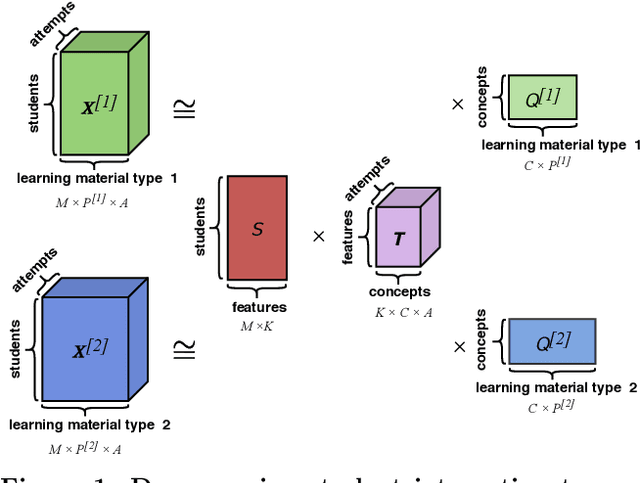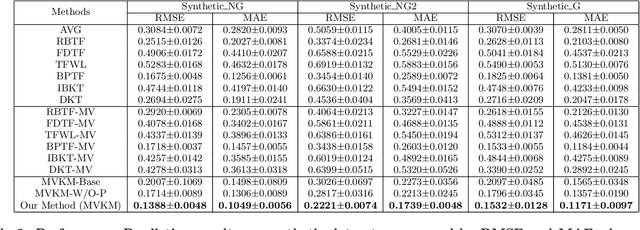Modeling Knowledge Acquisition from Multiple Learning Resource Types
Paper and Code
Jun 30, 2020



Students acquire knowledge as they interact with a variety of learning materials, such as video lectures, problems, and discussions. Modeling student knowledge at each point during their learning period and understanding the contribution of each learning material to student knowledge are essential for detecting students' knowledge gaps and recommending learning materials to them. Current student knowledge modeling techniques mostly rely on one type of learning material, mainly problems, to model student knowledge growth. These approaches ignore the fact that students also learn from other types of material. In this paper, we propose a student knowledge model that can capture knowledge growth as a result of learning from a diverse set of learning resource types while unveiling the association between the learning materials of different types. Our multi-view knowledge model (MVKM) incorporates a flexible knowledge increase objective on top of a multi-view tensor factorization to capture occasional forgetting while representing student knowledge and learning material concepts in a lower-dimensional latent space. We evaluate our model in different experiments toshow that it can accurately predict students' future performance, differentiate between knowledge gain in different student groups and concepts, and unveil hidden similarities across learning materials of different types.
 Add to Chrome
Add to Chrome Add to Firefox
Add to Firefox Add to Edge
Add to Edge